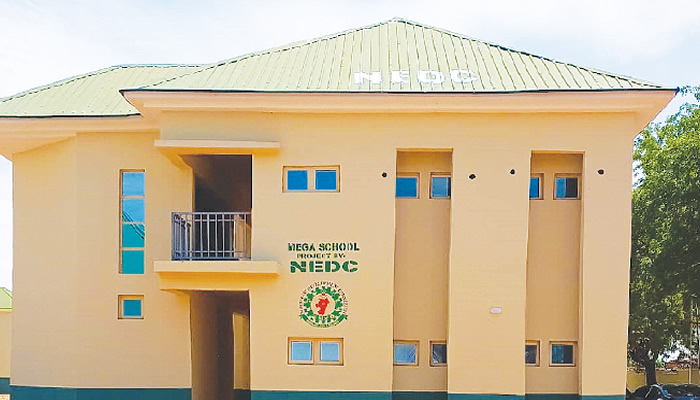The North East Development Commission (NEDC), a federal government agency established to address the developmental challenges in the North East region of Nigeria, has embarked on a significant housing project aimed at providing shelter and social amenities to residents of Yobe State. This ambitious initiative involves the construction of 500 housing units across various locations in the state, alongside essential infrastructure such as schools, roads, electricity, and water supply systems. The project represents a crucial step towards rebuilding communities ravaged by insurgency and displacement, offering a renewed sense of hope and stability for the affected population.
During a recent two-day visit to Yobe State, the Minister for Regional Development, Uba Maigari Ahmadu, underscored the importance of timely project completion and value for money. Inspecting the construction sites in Damaturu, the state capital, the minister reiterated the government’s commitment to delivering quality housing to the rightful beneficiaries. He emphasized the need for rigorous assessment of the ongoing work to ensure that the commission’s investment translates into tangible benefits for the people of Yobe State. This emphasis on accountability and efficient resource allocation underscores the government’s determination to maximize the impact of the NEDC’s interventions.
The Managing Director of the NEDC, Mohammed Goni Alkali, provided further details about the scope of the housing project. He confirmed that the 500 housing units are distributed across several locations in the state, with Damaturu receiving 250 units, while Potiskum, Geidam, and Nguru will each receive 50 units. This strategic distribution aims to address housing needs across the state, ensuring that the benefits of the project reach a wider population. The inclusion of social amenities within the project design, encompassing schools, roads, electricity, and boreholes, demonstrates a holistic approach to community redevelopment. The provision of these essential services will not only improve the living conditions of residents but also contribute to the long-term sustainability of the newly established communities.
Consultant Dr. Hassan Kankaka reported on the progress of the project, indicating that 200 houses have already been completed, while the remaining 300 are at various stages of completion. This phased approach to construction allows for ongoing monitoring and adjustments, ensuring quality control and adherence to project timelines. The significant progress made thus far reflects the commitment of the NEDC and its partners to deliver on their mandate of rebuilding and revitalizing the North East region. The completion of these housing units marks a substantial milestone in the effort to address the housing deficit in the region, providing much-needed shelter for families displaced by conflict and other challenges.
Beyond the housing initiative, the NEDC has also invested in educational infrastructure in Yobe State. During his visit, Minister Maigari Ahmadu inaugurated and handed over newly constructed schools to the state government. These schools, located in Buni Gari, Gashu’a, and Arikime, are equipped with modern facilities, including classrooms, toilets, administrative blocks, staff quarters, and a commercial center. The investment in education reflects the government’s understanding of its pivotal role in long-term development and recovery. By providing access to quality education, the NEDC is empowering the next generation of Yobe State residents and fostering a more prosperous future for the region. This commitment to education is not merely about constructing buildings but about creating opportunities for learning and growth, fostering hope and resilience in communities deeply affected by conflict.
The construction of these schools, as explained by Dr. Garba Iliya, the Director of Finance and Administration of the NEDC, aims to address overcrowding in existing schools and enhance the learning environment. With a student population of 20,200 in Potiskum alone, the new schools will significantly reduce class sizes, allowing teachers to provide more individualized attention to students. This improved learning environment, coupled with modern facilities, will undoubtedly contribute to better educational outcomes for the children of Yobe State. The investment in education underscores the NEDC’s commitment to not just rebuilding physical infrastructure but also fostering human capital, essential for sustainable development and a brighter future for the region. By providing access to quality education, the NEDC is empowering the next generation and laying the foundation for a more prosperous and resilient North East.


